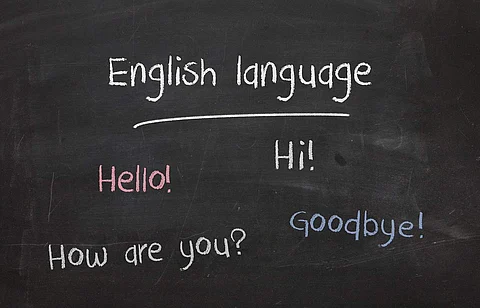

Some people speak English like a book. It means that they use certain words and sentences typical of written English while speaking. Look at this sentence:
The four teachers who have authored the research paper on the National Education Policy 2020 are Ramesh Muthu, Suresh Selvan, Rita Mathew and Ganesh Ashok and they are on the staff of the departments of English, Maths, Physics and Chemistry respectively.
What is the problem with this 41-word sentence? Nothing, really. The sentence has a parallel structure and it is grammatically correct. Though it is not lucid, it sounds good for written English. If the sentence is part of a report (written English), the reader can read the sentence once or twice and comprehend the meaning because they have access to the text. If the sentence is spoken, it is difficult for the listener to grasp the complete meaning. Halliday (1989) gives this example of a comparison between written language and spoken language:
Written text: The use of this method of control unquestionably leads to safer and faster train running in the most adverse weather conditions.
Spoken version: You can control the trains this way and if you do that you can be quite sure that they’ll be able to run more safely and more quickly than they would otherwise, no matter how bad the weather gets.
In the spoken version, ideas are repeated, some complex words such as ‘adverse’ are avoided and the word ‘and’ is used frequently. Most spoken language is produced in real time. It happens naturally. When two persons speak in an informal situation, they use language naturally. Even in a formal situation, it is important for a speaker to communicate to his audience in such a way that they understand his language and message easily. A good speaker is one who knows his audience, comes down to their level and is able to connect with them.
How is spoken language different from written language? Spoken language is less complex than written English. The simple reason is that in many cases it is not practically possible to ask a speaker to repeat or rephrase what he spoke. It may be possible if it is face-to-face communication and the communication takes place between a speaker and a small group of audience. If it is written language, it is possible for the reader to read a report or a business letter many times to understand or decode the content. Here are the features of spoken language:
- Simple and short sentences: Though we use compound and complex sentences while speaking, they are not really complex.
- Spoken grammar: In spoken language, to begin sentences with ‘But’ and ‘And’ is very common but in written language it is not common.
- More active verbs: We do not use many passive constructions in spoken language.
- More discourse markers: Discourse markers are words and phrases that we used to connect and manage what we say. Here are examples: right, anyway, okay, as I say, to begin with, first, for example, on the other hand.
I know all those words, but that sentence makes no sense to me — Matt Groening
